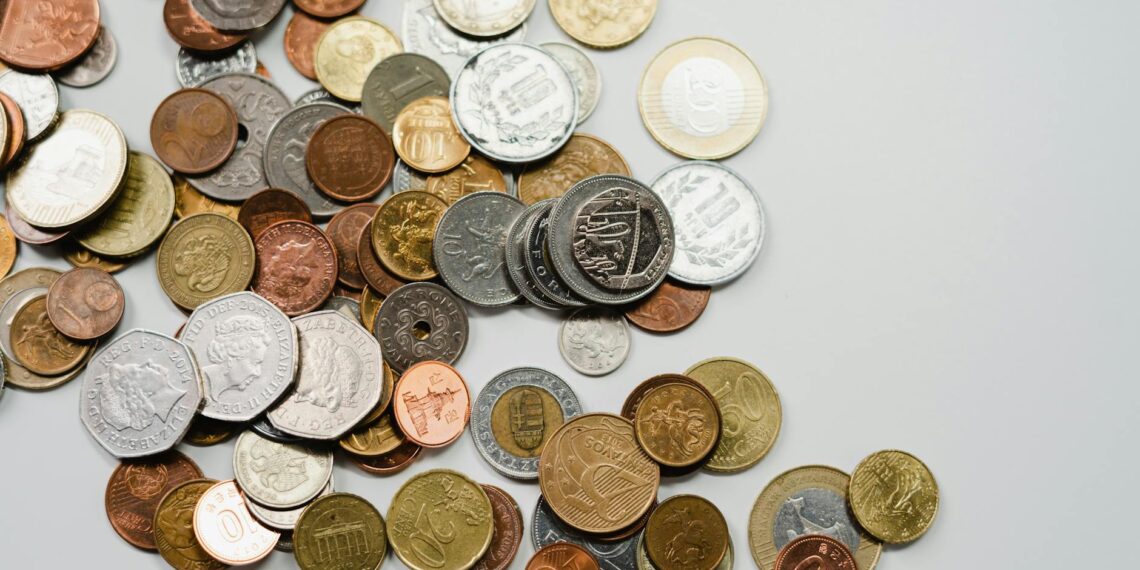When considering cleaning silver coins, it’s crucial to understand the impact on their potential value and collectible appeal, especially for older or rare coins.
Here’s a breakdown of common cleaning methods and important considerations:
- Collectible Value: Cleaning can significantly reduce the numismatic (collectible) value of coins, even if done gently. Many collectors prefer coins to retain their original patina or toning, which is a natural oxidation that occurs over time.
- Damage Potential: Abrasive cleaners, harsh chemicals, and even gentle scrubbing can cause hairline scratches or remove surface layers, impacting a coin’s condition and luster.
- Professional Guidance: If unsure about a coin’s value or how to clean it safely, consult with a qualified numismatist (coin expert) or professional grading service. They can offer guidance and cleaning services.
- Soap and Water: For common or low-value silver coins, a solution of mild dish soap and distilled water can be used.
– Soak coins for 10-15 minutes.
– Gently use a soft-bristled brush or toothbrush if needed, being aware of potential hairline scratches.
– Rinse thoroughly with distilled water.
– Pat dry with a soft cloth or allow to air dry.
- Baking Soda and Water: This method uses an abrasive solution, increasing the risk of surface damage, but is effective for removing stubborn tarnish.
– Line a container with aluminum foil.
– Add a layer of baking soda, place coins on top, and cover with more baking soda.
– Pour hot water over the coins until submerged.
– Let sit for about 5 minutes for a reaction to occur.
– Rinse in cold water and pat dry.
- Acetone: Pure acetone (not nail polish remover) can remove organic material without affecting patina or luster, but this isn’t guaranteed.
– Soak coins for a short period (starting with one minute or less).
– Be cautious and avoid skin contact.
– Rinse or dip the coin in acetone, [according to Endeavor Metals].
- Silver Dips: Commercial silver dip products like e-Z-est Coin Cleaner are available and can remove tarnish.
– Follow product instructions carefully.
– Avoid prolonged exposure to prevent a falsely bright or artificial appearance that can damage a coin’s collectible value.
- Distilled Water: The safest method for cleaning silver coins and bars, [according to the U.S. Gold Bureau] . It doesn’t contain harsh chemicals or minerals that can mar the surface. While it won’t make coins as shiny, it is safe.
- Vinegar or Lemon Juice: These acidic liquids can clean coins but also eat away at the coin’s surface and reduce their value. Use with extreme caution and only for coins valued for their silver content.
- Toothpaste: Toothpaste can be used for cleaning silver coins, but it contains mild abrasives and can cause hairline scratches, [according to Gainesville Coins] . It is more expensive than baking soda but convenient.
- Silver Polish: Using silver polish can leave a coin shiny but can also damage the surface layers due to its acidic and abrasive content.
- Dry the coins thoroughly with a soft cloth to prevent water spots and further tarnish.
- Store coins properly in a cool, dry area, using coin holders, albums, or airtight containers with anti-tarnish strips to protect them.
- Avoid cleaning valuable or collectible coins whenever possible.
- If you must clean them, use the least intrusive methods first.
- Always be gentle and use soft materials.
- Never use harsh chemicals like bleach or ammonia.









Do silver coins lose value when cleaned?
It’s generally not a good idea to clean coins, especially collectible or valuable ones. Cleaning can damage the coin’s surface, remove its natural toning, and significantly decrease its value. Even light cleaning can leave microscopic scratches that collectors and dealers will notice. If a coin looks dirty or tarnished.
Does Coca-Cola clean silver coins?
I can help with that. NO! Coca cola is highly acidic and will destroy your coins. If you really need to clean any coin use only distilled water and a drop of dishwashing detergent. Let a coin sit in this for a while. If necessary to dislodge any stubborn dirt use a soft brush. Dry the coin thoroughly before you put into a flip.
What is the best way to clean silver without damaging it?
From my experience, Best Overall: Aluminum Foil, Baking Soda & Hot Water
“You just dump it in the sink and let it soak and it does a darn good job of getting even heavily oxidized tarnish off if you leave it long enough… Then you just give it a good rinse.”